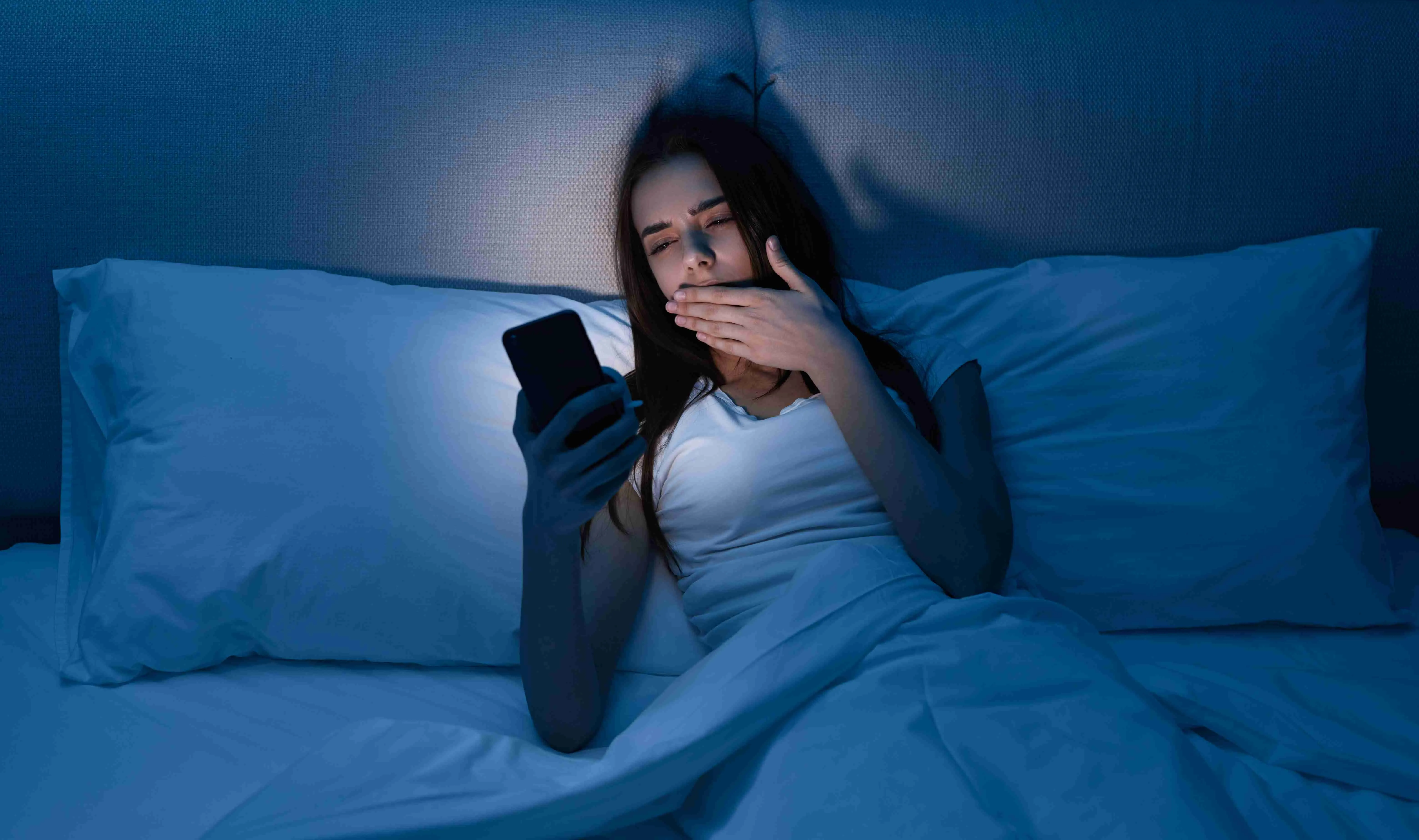In the digital age, social media has become an integral part of our daily lives, influencing various aspects of our well-being, including our sleep patterns.
This article delves into the impact of social media on sleep, exploring the underlying mechanisms, consequences, and strategies to strike a healthy balance.
Understanding the Relationship Between Sleep and Social Media
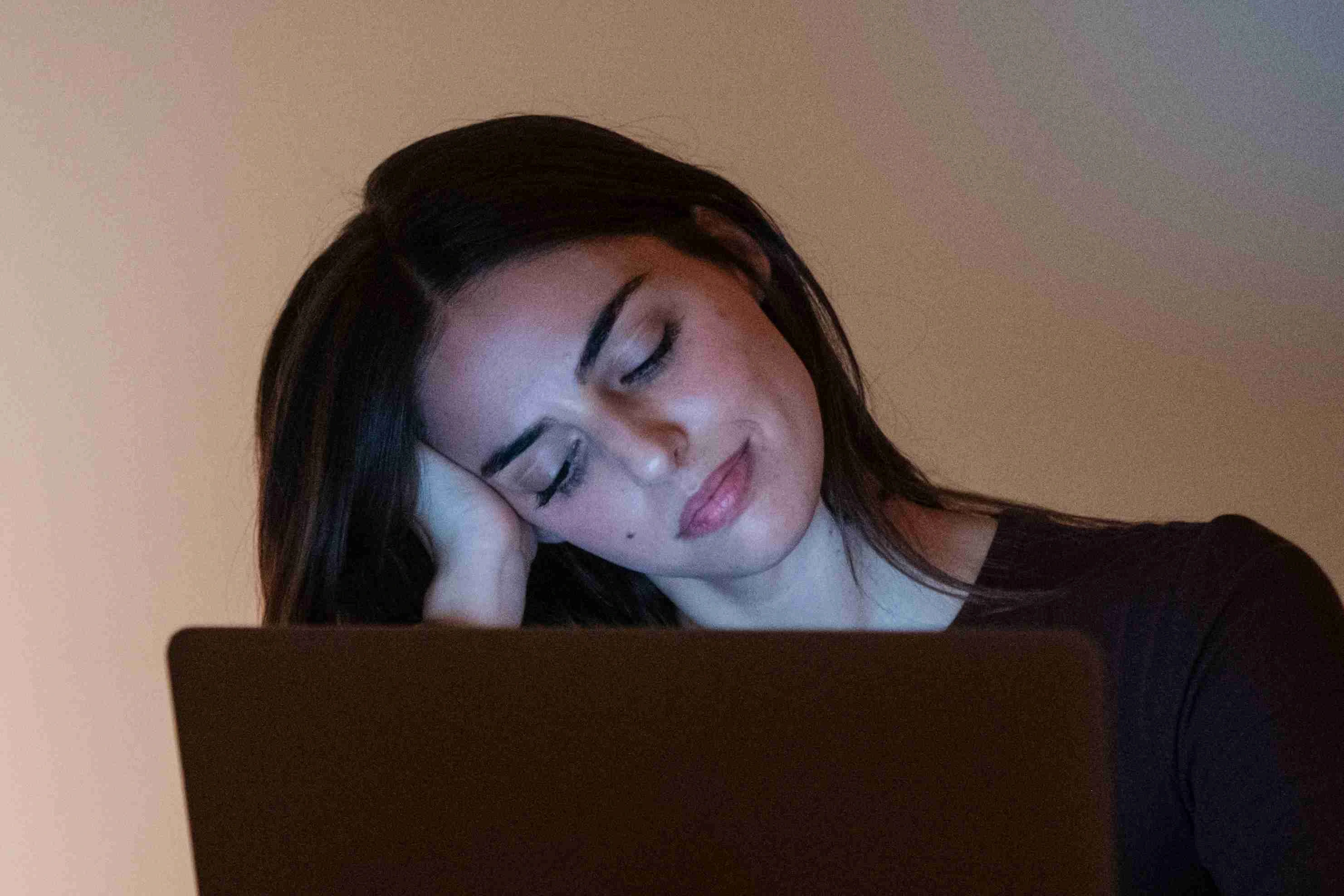
Sleep and social media may seem like disparate elements, but their relationship is intrinsically linked. Social media platforms are designed to captivate our attention, fostering a constant desire for connection and information.
This constant stimulation can disrupt our body's natural sleep-wake cycle, leading to sleep disturbances and a host of related issues. Understanding how sleep works can help explain why these disruptions occur and how they impact overall well-being.
How Social Media Affects Sleep Patterns
Social media has become an integral part of daily life, but its impact on sleep patterns is a growing concern. Here's how social media can negatively affect the quality and duration of your sleep:
- Delayed Bedtime: Engaging with social media can easily lead to late-night scrolling. Whether it's catching up on posts, watching videos, or responding to messages, many people find themselves staying up later than intended. This can result in a delayed bedtime, reducing the amount of sleep you get and disrupting your natural circadian rhythm.
- Blue Light Exposure: Social media usage often involves screen time, and the blue light emitted by phones, tablets, and computers can interfere with sleep. Blue light suppresses the production of melatonin, the hormone responsible for regulating sleep, making it harder to fall asleep and reducing the overall quality of sleep.
- Increased Mental Stimulation: Social media can be mentally stimulating, especially when engaging with emotionally charged content or heated discussions. This heightened mental activity can make it difficult to unwind and relax before bed, leading to longer time spent falling asleep or poorer sleep quality overall.
- Notifications and Sleep Disruptions: Frequent notifications from social media apps, whether they're from messages, likes, or posts, can disrupt sleep. Even if you don't engage with them immediately, the sound or vibration can trigger a response in the brain, leading to awakenings during the night or difficulty returning to sleep.
- Reduced Morning Alertness: Social media can also disrupt morning alertness by causing a poor night’s sleep. Waking up frequently or getting less sleep due to late-night usage can leave you feeling groggy and less energized in the morning, this is known as sleep inertia. This can affect your productivity, mood, and overall well-being throughout the day.
Common Online Habits That Disrupt Sleep
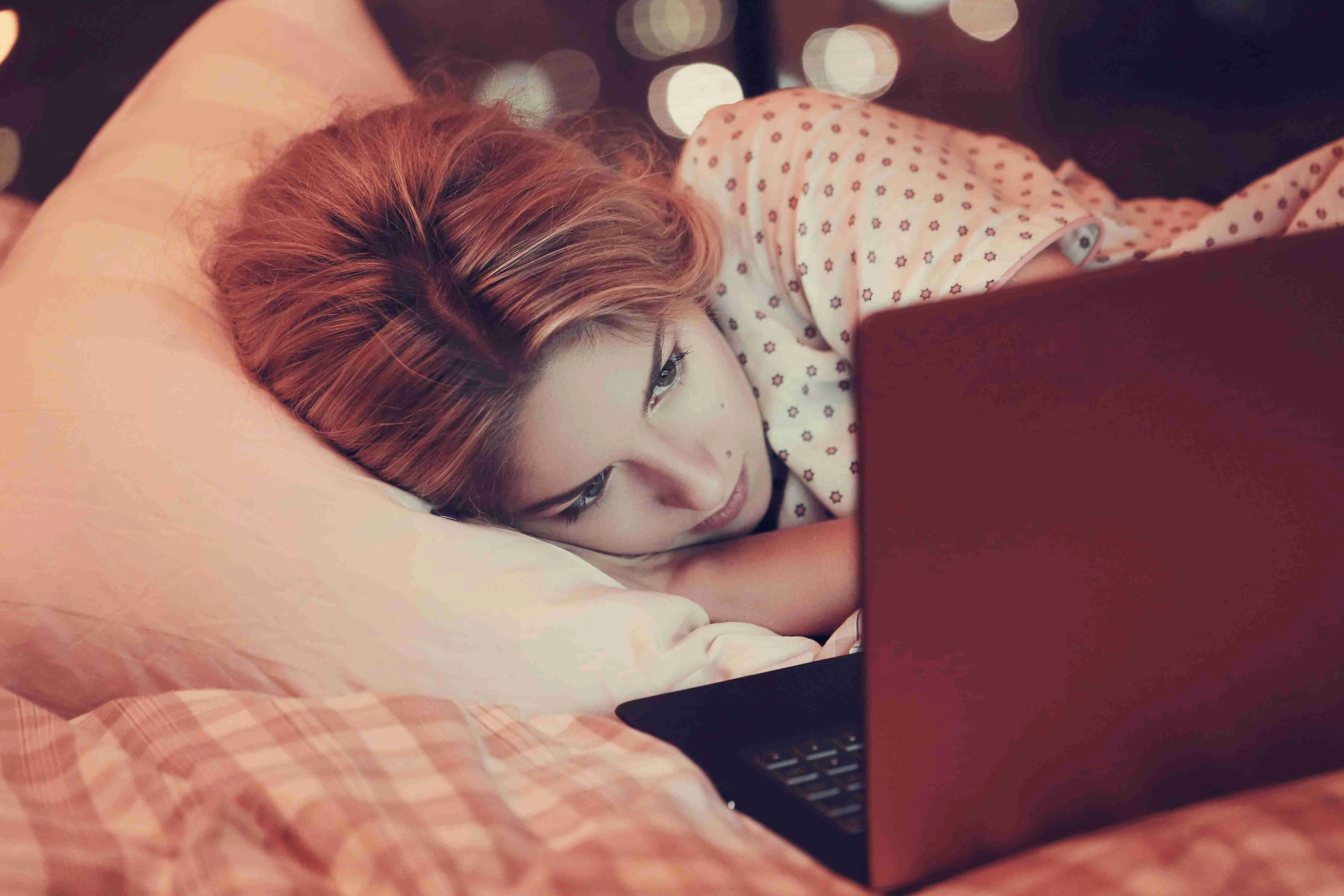
Several online habits contribute to the disruption of sleep patterns:
Late-Night Scrolling
The infinite feed of content on social media platforms can lead to prolonged screen time, delaying bedtime and reducing overall sleep duration.
Binge-Watching
Streaming services provide easy access to entire seasons of shows, which can lead to binge-watching late into the night. This not only shortens sleep duration but also keeps the brain engaged, making it harder to wind down.
Using Devices in Bed
Using smartphones, tablets, or laptops in bed for activities like checking emails, browsing social media, or watching videos can make it difficult to create a calming bedtime environment. This can interfere with the body's natural sleep cues and reduce sleep quality.
Learn more about Electronics and Sleep.
Fear of Missing Out (FOMO)
Social media can trigger feelings of anxiety or FOMO—fear of missing out—on social updates, news, or events. This can drive individuals to stay up late engaging with platforms, leading to sleep deprivation and a lack of rest.
Nighttime Online Shopping
Late-night shopping sprees or browsing can also disrupt sleep patterns. The excitement of making purchases or decision-making can increase alertness, making it harder to unwind and fall asleep.
Engaging in Online Arguments or Debates
Discussions or disagreements on social media or in online forums can provoke strong emotions. Engaging in arguments can leave you feeling stressed or agitated, which negatively impacts your ability to fall asleep.
Excessive Gaming
Online gaming, especially games that are competitive or immersive, can keep the brain active long after playing has ended. The excitement or frustration from gaming can delay the relaxation needed for a restful night’s sleep.
Late-Night Work or Emails
Many people check work emails or engage in work-related tasks late into the evening. This not only delays bedtime but can also cause stress and anxiety, making it harder to switch off before sleep.
Multitasking
Trying to juggle multiple online activities—such as watching TV while checking social media or responding to emails—can overload the brain. This cognitive overload prevents the body from transitioning into a restful, relaxed state necessary for sleep.
Social Comparisons
The tendency to compare oneself to others on social media can trigger feelings of inadequacy, anxiety, or envy. These negative emotions can make it harder to wind down and fall asleep, as your mind continues to dwell on comparisons.
Long-Term Effects of Social Media on Sleep
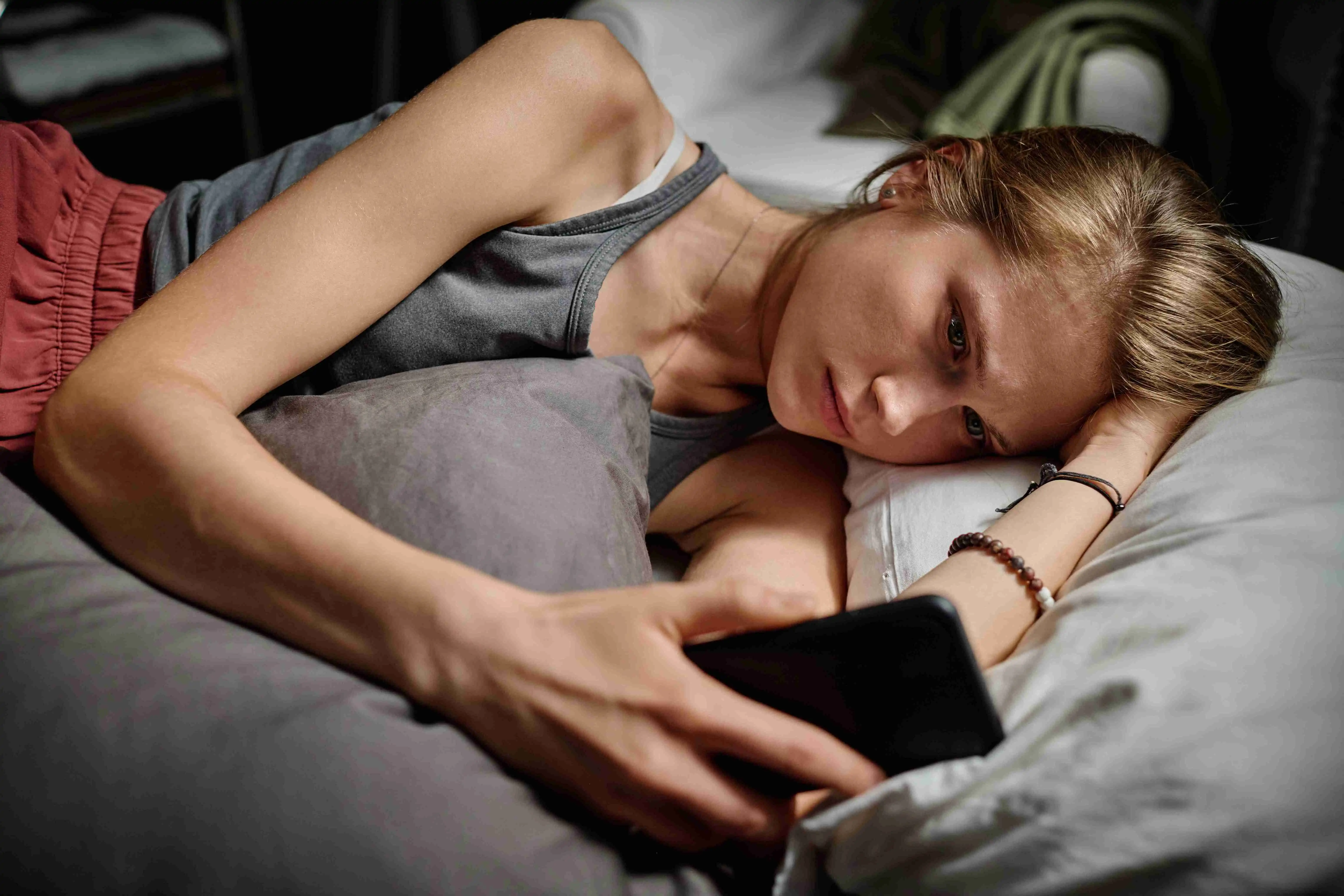
As social media usage continues to be a significant part of daily life, it’s important to recognize its potential impact on sleep patterns. The constant engagement with platforms, particularly before bedtime, can have long-lasting effects on sleep quality and overall health.
Sleep Deprivation
Understanding these effects is crucial for managing social media habits and prioritizing healthy sleep. Let’s examine how prolonged exposure to social media can contribute to sleep deprivation.
- Reduced Sleep Duration: Prolonged use of social media late at night leads to delayed bedtimes, often resulting in fewer hours of sleep.
- Disrupted Sleep Cycles: Continuous screen time, especially before bed, can interfere with the natural sleep-wake cycle, leading to fragmented or poor-quality sleep.
- Increased Wakefulness: The mental stimulation from engaging with content or notifications can keep the brain alert, making it harder to fall asleep and stay asleep.
Poor Mental Health
It’s equally important to acknowledge the wider effects it can have on mental health. Prolonged exposure to social media can disrupt various aspects of well-being, influencing everything from emotional stability to sleep quality and overall health.
- Anxiety and Stress: Constant social media use, especially in comparison to others, can increase feelings of stress and anxiety, making it difficult to relax and sleep.
- Depression: Excessive time on social media may be linked to higher rates of depression, as individuals may feel isolated or inadequate due to unrealistic portrayals of others’ lives.
- Negative Emotions: Online interactions, especially those involving conflict or negative feedback, can contribute to emotional distress that affects sleep.
Increased Risk of Sleep Disorders
While staying connected online can offer various benefits, excessive use—especially before bed—can contribute to a range of sleep-related issues and health challenges.
- Insomnia: Prolonged exposure to blue light and mental overactivity from social media use before bed can contribute to insomnia, making it harder to fall asleep or stay asleep.
- Delayed Sleep Phase Disorder (DSPD): Habitual late-night social media use can shift an individual’s natural sleep cycle, causing problems with falling asleep at a traditional bedtime.
- Restless Sleep: The constant engagement with online content can prevent individuals from achieving restful sleep, leaving them feeling fatigued and unrested due to restless sleep.
Weakened Immune System
The negative impact of social media on mental health is not limited to just emotional distress—it can also lead to physical consequences that affect sleep and our immunity.
- Reduced Sleep Quality: Chronic sleep deprivation caused by excessive screen time can impair immune function, making individuals more susceptible to illnesses.
- Increased Inflammation: Poor sleep due to social media habits can lead to higher levels of inflammation in the body, which has been linked to various health issues.
Decline in Cognitive Function
While the emotional toll of online interactions can be significant, the consequences extend to sleep patterns and health as well.
- Memory Problems: Sleep is essential for memory consolidation, and long-term sleep deprivation can impair learning and memory retention.
- Difficulty Concentrating: Lack of adequate rest from social media-induced sleep disruptions can lead to problems with focus, attention, and decision-making.
- Decreased Mental Clarity: Over time, insufficient sleep from online habits can result in brain fog and reduced mental sharpness.
Physical Health Issues
It’s also as important to recognize the broader impact it can have on both mental and physical health.
- Increased Risk of Chronic Diseases: Sleep deprivation has been linked to a higher risk of developing conditions like obesity, diabetes, and heart disease.
- Weakened Cardiovascular Health: Poor sleep quality due to social media use can negatively impact heart health, leading to high blood pressure and increased risk of stroke or heart attacks.
- Weight Gain: Sleep disruptions caused by late-night social media use may also lead to unhealthy eating habits, contributing to weight gain and metabolic disorders.
How to Balance Social Media Use and Sleep
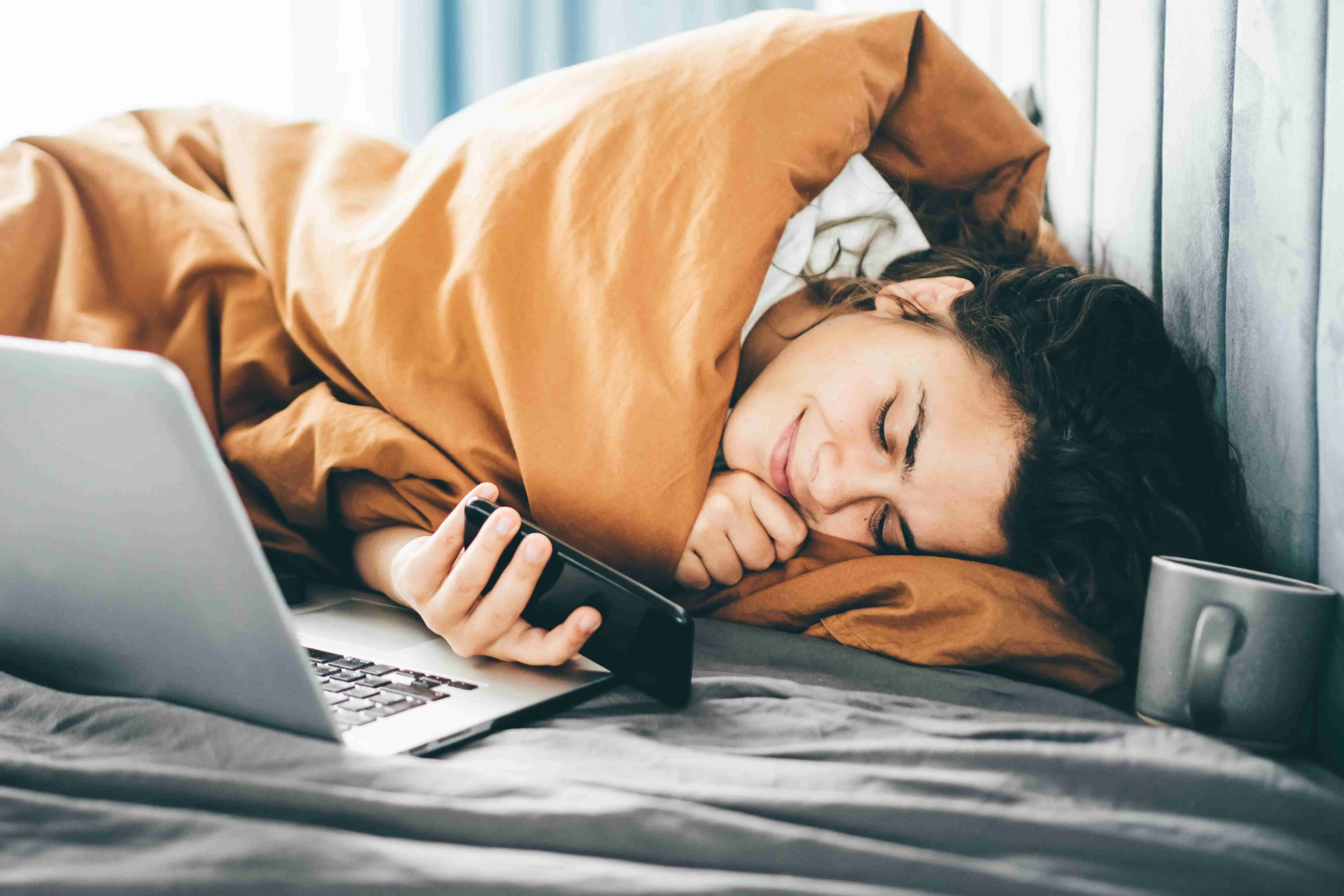
To mitigate the negative impact of social media on sleep, it's essential to implement effective strategies:
Establish a Digital Curfew
One of the most effective ways to manage social media’s impact on sleep is by setting a digital curfew. This involves designating a specific time each night to stop using digital devices, especially social media platforms.
Create a Sleep-Conducive Environment
Your sleep environment plays a significant role in determining how well you rest each night.
Make your bedroom a sanctuary for sleep by minimizing any distractions, including the blue light emitted by devices. Keep your room cool, dark, and quiet to encourage the body’s natural sleep rhythms.
Practice Sleep Hygiene
Establishing a consistent sleep routine is essential for promoting healthy sleep. Sleep hygiene involves a combination of habits that signal to your body that it’s time to wind down and rest.
These might include engaging in relaxing activities like reading, meditating, or doing deep-breathing exercises before bed.
Adjust Device Settings
Modern devices often come with built-in features to help mitigate their impact on sleep. For instance, most smartphones and computers offer a "night mode" setting that reduces the amount of blue light emitted by screens.
Blue light has been shown to disrupt melatonin production, the hormone responsible for regulating sleep, so activating these settings can make it easier to wind down in the evening.
Practice Digital Detox
A digital detox involves intentionally stepping away from social media and electronic devices for an extended period.
Taking breaks from screens during the day can help reduce overall stress and improve sleep quality at night. Schedule regular "device-free" times throughout the day or week when you focus on offline activities.
Keep Devices Out of the Bedroom
Creating a tech-free zone in the bedroom is one of the most effective ways to ensure quality sleep. Keeping your phone, tablet, or laptop out of reach during the night removes the temptation to check notifications or mindlessly scroll before bed.
Prioritize Real-Life Connections
Make time for in-person interactions and social activities that don’t involve screens. Strengthen relationships with family and friends through offline experiences, which can help reduce the anxiety and FOMO associated with constant online engagement.
FAQs
Can social media use lead to insomnia?
Yes, excessive social media use, particularly before bedtime, can disrupt the body's natural sleep-wake cycle and contribute to the development of insomnia.
Is it better to avoid social media altogether for better sleep?
While limiting social media usage, especially before bedtime, is recommended, complete avoidance may not be necessary or practical for everyone. The key is to establish healthy boundaries and maintain a balanced approach.
Can blue light-blocking glasses help mitigate the effects of social media on sleep?
Yes, wearing blue light-blocking glasses in the evening can help reduce the suppression of melatonin production caused by blue light exposure from digital screens, potentially improving sleep quality.
Are there any age-specific considerations regarding social media's impact on sleep?
While social media can affect sleep patterns across all age groups, adolescents and young adults may be particularly vulnerable due to their increased reliance on digital devices and social media platforms.
Can social media use affect the quality of sleep, even if it doesn't disrupt sleep duration?
Yes, even if social media use doesn't directly impact sleep duration, it can still affect the quality of sleep by disrupting the body's natural sleep-wake cycle and contributing to restlessness or fragmented sleep patterns.
Conclusion
Striking a balance between social media usage and restful sleep is crucial for overall well-being. By understanding the impact of social media on sleep patterns and implementing effective strategies, you can cultivate healthy online habits and prioritize your health.
Dom Abraham
As the lead content writer at Sleepiverse. Dom pours his heart into writing mattress reviews, bedding product reviews, and medically-reviewed health articles. Dom is from Portugal and likes to spend his free time writing on the beach as it gives him a sense of comfort. Aside from writing mattress reviews in front of the soothing beach view, Dom likes to experiment with new amazing food ideas.


